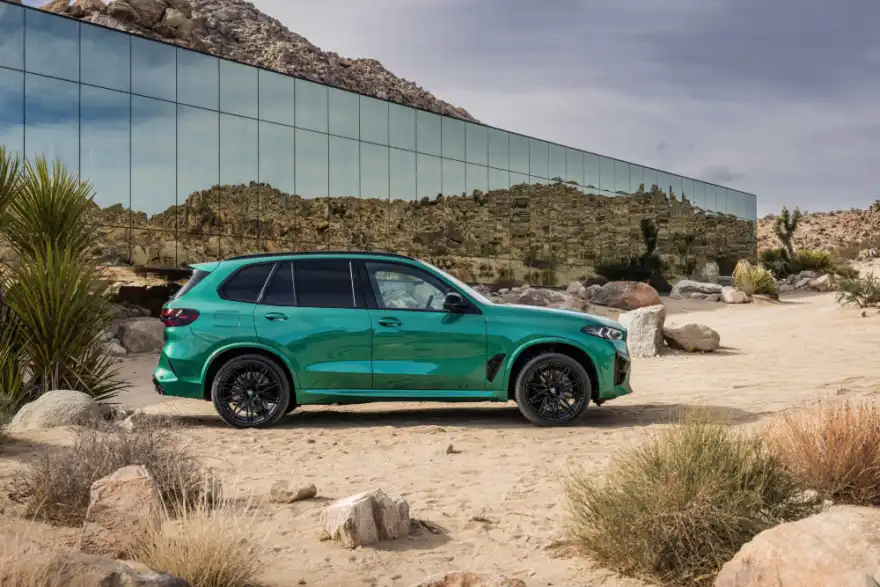
A significant increase in Vehicle Excise Duty (VED) is set to affect 59 luxury and high-performance vehicles from April 2025, as the Labour government moves forward with a major tax overhaul. The new policy will target cars emitting more than 255g/km of CO2, resulting in a staggering rise in road tax costs, which will increase by £2,745, pushing annual charges up to £5,490.
While the standard road tax rate will rise in line with inflation from April 2025, owners of high-emission vehicles will face a much steeper climb in costs if their car’s CO2 emissions exceed 75g per kilometre. In particular, those purchasing new vehicles with high carbon emissions will see a sharp rise in their road tax bills.
The government's plan to increase the road tax for higher CO2-emitting vehicles is part of a broader effort to raise £400 million for the treasury in the coming year, with projections reaching £1.7 billion by the end of the decade. As part of this initiative, the first-year road tax rates for vehicles in the higher CO2 emissions bands will be doubled. This measure, while designed to discourage the purchase of higher-emission cars, is expected to hit luxury vehicle buyers the hardest.
Interestingly, the government has acknowledged the potential unfairness of the current system when it comes to zero-emission cars. In a briefing document, the government stated, “The government recognises the disproportionate impact of the current VED Expensive Car Supplement threshold for those purchasing zero-emission cars and will consider raising the threshold for zero-emission cars only at a future fiscal event, to make it easier to buy electric cars.” This suggests that future tax adjustments may make electric vehicles more accessible by adjusting tax brackets.
The following list includes some of the affected models:
- Alfa Romeo Stelvio 2.9 V6 Bi-Turbo
- Audi R8 5.2 FSI V10
- Audi RS6 4.0 TFSI V8
- Audi RS7 4.0 TFSI V8
- Audi RSQ8 4.0 TFSI V8
- Audi S8 4.0 TFSI V8
- Audi SQ7 4.0 TFSI V8
- Audi SQ8 4.0 TFSI V8
- Aston Martin DB12 4.0 V8
- Aston Martin DBX 4.0 V8
- Aston Martin Vantage 4.0 V8
- Bentley Bentayga 4.0 V8
- Bentley Continental 4.0 V8
- Bentley Continental 6.0 W12
- Bentley Flying Spur 4.0 V8
- BMW Alpina XB7 4.4 V8
- BMW M8 4.4 V8
- BMW X5 M 4.4 V8
- BMW X6 M 4.4 V8
- BMW X7 M 4.4 V8
- Chevrolet Corvette Stingray 6.2 V8
- Ferrari Purosangue 6.5 V12
- Ferrari Roma 3.8T V8
- Ford Mustang 5.0 V8
- Ford Ranger 2.0 TD EcoBlue
- Ford Ranger 3.0 EcoBlue
- Ford Ranger 3.0 V6
- INEOS Grenadier 3.0P
- Jaguar F-Pace 5.0 P575 V8
- Jeep Wrangler 2.0 GME
- Lamborghini Huracan 5.2 V10
- Lamborghini Urus 4.0 V8 BiTurbo
- Lamborghini Revuelto 6.5 V12
- Land Rover Defender 90 5.0 P425 V8
- Land Rover Defender 110 5.0 P425 V8
- Lotus Emira 3.5 V6
- Maserati Levante 3.0 V6
- Maserati Levante 3.8 V8
- Maserati MC20 3.0 V6
- McLaren GT 4.0T V8
- Mercedes-Benz AMG GT 4.0 V8
- Mercedes-Benz G400D
- Mercedes-Benz G63
- Mercedes-Benz GLC63
- Mercedes-Benz GLE63
- Mercedes-Benz GLS63
- Mercedes-Benz SL55
- Porsche 718 Cayman 4.0 GT4
- Porsche 911 3.7T 992 Turbo
- Porsche Cayenne 4.0T V8
- Porsche Macan 2.9T V6
- Range Rover 4.4 P530 V8
- Range Rover 4.4 P615 V8
- Range Rover Sport 4.4P V8
- Rolls-Royce Cullinan 6.75 V12
- Rolls-Royce Ghost 6.75 V12
- Toyota Hilux 2.8D
- Toyota Land Cruiser 2.8D
- Volkswagen Amarok 3.0 TDI
These vehicles, known for their power and performance, will be subject to significant tax hikes as part of the government's ongoing efforts to reduce carbon emissions. Drivers of these models will need to factor in the increased cost when considering their vehicle's long-term financial impact.
While the tax rise is expected to impact buyers of new high-performance cars, it is also a signal of the direction the government is taking towards stricter emissions policies. As electric vehicles gain prominence, it seems likely that further adjustments to tax bands and incentives for zero-emission vehicles will follow, making them a more attractive option in the future.
This increase in road tax for high-emission vehicles is likely to influence car buyers’ choices in the coming years. However, with electric vehicle technology advancing rapidly and government incentives aimed at making zero-emission cars more affordable, the future of motoring may be electric, and these tax changes could be part of a broader push towards greener transport solutions.



